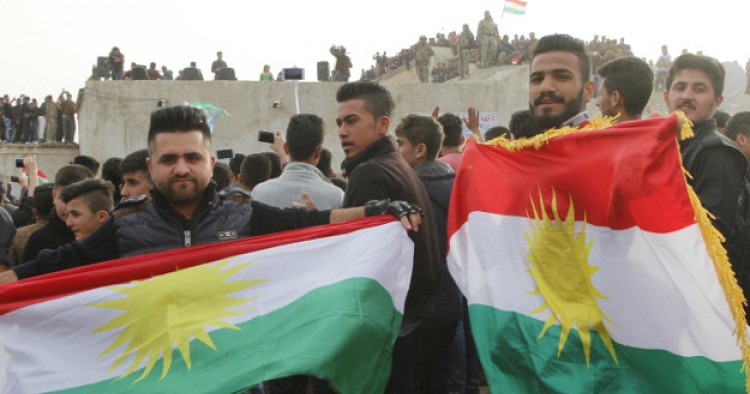Secretary of Iran’s Expediency Council Mohsen Rezaei has warned that the consequences of the Iraqi Kurdistan’s plan to hold an independence referendum will be dire for Iraq and the broader region. “Disintegration of Iraq would mark the beginning of widespread insecurity not only in Iraq, but in the entire region… We oppose such a referendum and call on the Kurdish leaders to halt that plan,” he said at a press conference in Baghdad on Monday. The former chief commander of the Islamic Revolution Guards Corps (I.R.G.C.) also accused leaders of the Kurdish Regional Government (K.R.G.) of playing a “dangerous game” and pursuing “personal motives” rather than national interest. Rezaei, a former presidential candidate, is visiting Iraq with Ayatollah Mahmoud Hashemi Shahroudi, the chairman of the Expediency Council, to meet Iraqi political and religious leaders.
Comment: On June 7, K.R.G. officials announced that an independence referendum would be held on September 25 – a move Tehran strongly opposes. Iranian leaders fear that the Iraqi Kurdistan’s independence may undermine Iran’s long-term strategic interests in Iraq. In April, Major General Qassem Soleimani, the head of the Islamic Revolution Guards Corps (I.R.G.C.)'s elite Quds Force, reportedly traveled to the Iraqi Kurdish city of Sulaymaniyah to convince Iraqi Kurdish leaders not to hold the referendum. The Iranian general, according to Asharq al-Awsat, held meetings with leaders of the Patriotic Union of Kurdistan (P.U.K.), which is headed by Jalal Talabani, and urged them against reaching an agreement over the referendum with President Masoud Barzani, who is also the head of the Kurdistan Democratic Party (K.D.P.). Other Iranian leaders have also publicly voiced opposition to the referendum plan.
Moreover, Iranian-backed Iraqi militia groups have also warned that they would not allow any parts of Nineveh Province to be incorporated into the Iraqi Kurdistan Region. However, they have failed to persuade or pressure the K.R.G. leaders to cancel or postpone the plan. A senior official of Asa’ib Ahl al-Haq, an Iran-supported militia unit within Iraq’s Popular Mobilization Forces (P.M.F.), earlier this month threatened violence against the leadership of the Iraqi Kurdistan, according to Fars News Agency. Adnan Faihan, the head of the group’s political office, warned Iraqi Kurdistan’s President Masoud Barzani against “marking the border with blood” and said his militia forces are ready to confront him if the Kurdish leader “tries to impose his will on disputed regions.” The militia commander emphasized that the Baghdad government will not “gift land to Masoud Barzani.” He continued: “The referendum that the Kurds talk about is about the Kurds and Arabs will not take part in it. We do not threaten Barzani but warn him not to dare to mark the borders with blood. In such a situation, our hands will also not remain tied and we will confront him militarily.”
Tehran is also concerned that such a move might trigger calls for autonomy among its own Kurdish population. Militant and separatist groups have waged a low-intensity insurgency against the Iranian state for decades. Iranian Kurds – estimated about eight million – have long complained about state-sanctioned discrimination and economic and political marginalization. The Kurdistan Democratic Party of Iran – a militant group based in the Iraqi Kurdistan – has resumed militancy and occasionally launches attacks against the Iranian security forces.
The Middle East Institute (MEI) is an independent, non-partisan, non-for-profit, educational organization. It does not engage in advocacy and its scholars’ opinions are their own. MEI welcomes financial donations, but retains sole editorial control over its work and its publications reflect only the authors’ views. For a listing of MEI donors, please click here.












